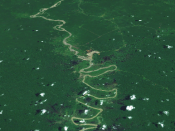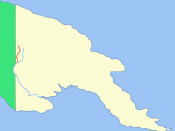Business society � PAGE �1�
Ethical decision making: the case of BHP and Ok Tedi River
Broad and comprehensive visions of environmental justice are possible, though always open to new political challenges and shifts in the arrangement of human societies and in environments themselves. The vision of environmental justice can be understand by taking the question of justice in a particular conflict of interest, that between the mining giant Broken Hill Proprietary, Ltd. (BHP) and the traditional landowners of an area on the Ok Tedi river in Papua New Guinea (PNG).
Ethical decision-making is becoming a vital framework in an organization. Firms are starting to understand that they have a wider responsibility to the communities within which they operate. It is said that there are two kinds of responsibilities in a firm - commercial and social. Commercial responsibilities involve manage a business successfully, generating profit and satisfying shareholder expectations.
Social responsibility on the other hand is being aware of the issues being presented in the community and the working environment. In the light of all these arguments, it was very difficult for Paul Aderson, the Chief Executive Officer of BHP, to take decision when he was presented four options for the company by study.
There is rich literature on environmental ethics and many texts start by posing questions that assume a societal, or even global, frame. The big questions usually address the capability of the earth's resources to support its human population, the capability of the biosphere to absorb human wastes, the quickly increasing rate of extinction of non-human species, the exploitation of the environment of the poorer nations to preserve the lifestyle of the richer, the systematic discounting of the interests of generations which have not even come to this world, the enormous injury to the forests and...


